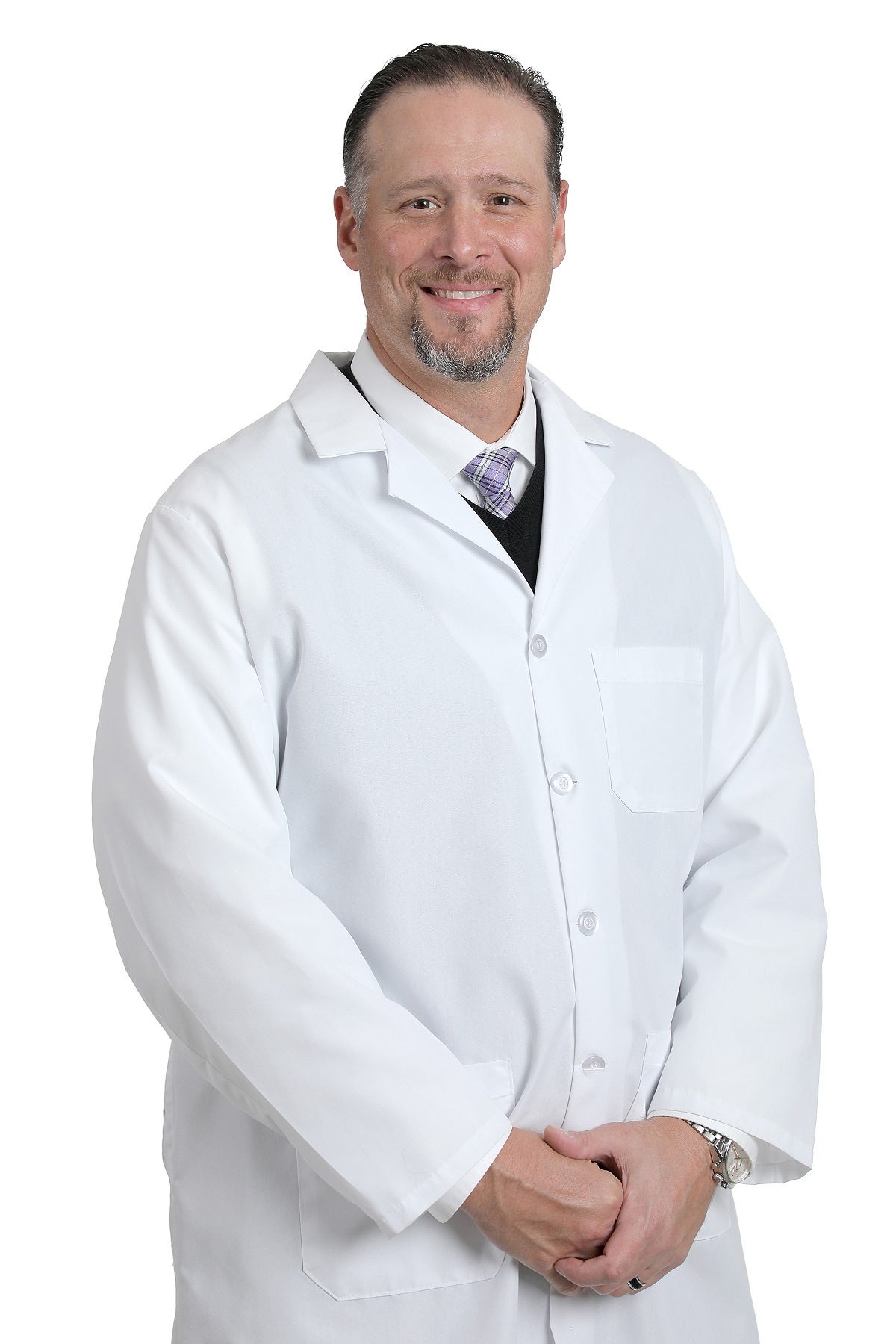Arthritis Treatment: Q/A with Andrew Fras, MD
August 22, 2022
By: Mary Ann Boyer
Categories: Men's Health, Orthopedics (Bones, Joints, Muscles), Women's Health
Dr. Fras received his medical degree at Michigan State University College of Human Medicine. He completed his residency at McLaren Flint, and his fellowship in orthopedic trauma was completed at Vanderbilt University Medical Center
Q: What exactly is arthritis and how does it develop?
Dr. Arthritis is a degenerative, progressive condition of the joint where the cartilage that coats the end of the bone begins to diminish. The stresses and changing of mechanics can cause inflammation in the joint.
There are several different ways it can develop. The most common way is through wear and tear — otherwise known as osteoarthritis — from daily activities such as walking, or more high-impact activities like running. Body weight, genetics, and even type of occupation can all contribute to this. Less commonly, rheumatoid type processes are where the immune system gets confused and essentially attacks the joints, leading to cartilage.
There is also traumatic arthritis, which is when a person suffers a major injury to the surrounding bone (fracture, severe bruise), ligaments (tear or rupture), or cartilage itself. The blood supply to the bone underneath the cartilage can then be compromised, which can cause the joint to collapse.
Q: What are some symptoms of arthritis?
Dr.: The most common symptoms are joint stiffness, activity-related pain, swelling and generalized soreness. You may notice an affected joint that is stiffer in the morning and loosens up with activity during the day but is more painful or swollen at the end of the day. If activities you do on a regular basis start causing more pain in certain joints, you could have some form or arthritis. As it progresses, you will frequently lose range of motion and strength in the joint. In advanced cases, you may even start to see changes in the alignment of the joint.
Q: What are some treatment options?
Dr.: We initially highlight evidence-based non-operative treatments, which focuses on managing the stress and inflammation of the joint. Activity modification, such as transitioning from higher impact sports to low-impact activities, can make a difference. For instance, if you are an avid runner and feel excessive pain during or after every run, changing up your cardio routine and going for a bike ride instead can improve symptoms. Other activities like yoga or taking a swimming class are also good for arthritic joints. We frequently recommend appropriate physical therapy and dedicated exercises that emphasize strength and flexibility.
Medications like ibuprofen can help reduce inflammation and pain in the joint, as can cortisone and steroid injections. Even acetaminophen can help control pain in some people. If the arthritis and symptoms are severe enough, joint replacement surgery is an excellent and durable option.
Q: What happens if you leave arthritis untreated?
Dr.: All types of arthritis are progressive. Symptoms and pain can be managed to an extent, but no treatment, short of replacement, can stop it, and it doesn’t go away on its own. Typically, over time, the disease progresses to the point where you won’t be able to do the activities you are used to doing, and your quality of life will continue to diminish. You could also lose your mobility altogether; some people have come into my office in wheelchairs because they couldn’t move, which is frequently avoidable and unfortunately, far more difficult to treat. The earlier you get it checked out, the better.
Q: What kind of services do you offer your patients?
Dr.: We offer comprehensive musculoskeletal care, all in one building, and mostly on just one floor. We have fellowship-trained surgeons, podiatrists, non-operative orthopedic sports, and rheumatology physicians, as well as physical therapy, all under one roof. Our specialists emphasize shared decision-making, in which we empower our patients to make informed decisions that fit their needs and pathology. If surgery is appropriate, our experts utilize minimally invasive techniques — even for replacement — that offer faster recoveries, proven results and frequently home-same-day surgeries.
Find out more about Trinity Health Orthopedics care and services.



